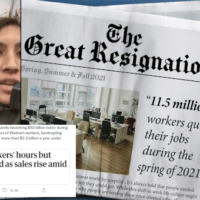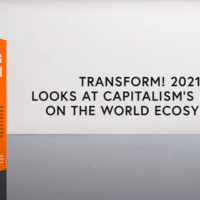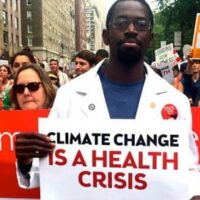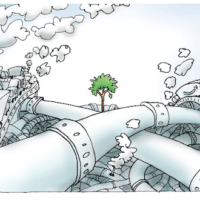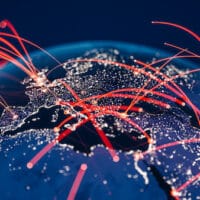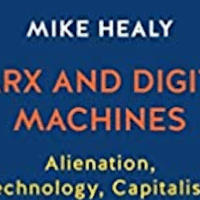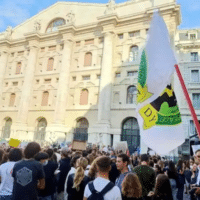-
Record numbers of workers are quitting and striking
The seriousness of the situation was confirmed by the latest Bureau of Labor Statistics report showing that a record 2.9 percent of the workforce quit their jobs in August, which is equivalent to 4.3 million resignations.
-
A radical #greennewdeal is the only way to stop climate catastrophe – Jeremy Corbyn exclusive on #Cop26
When COP26 is held in Glasgow, the world will be watching to see if an international agreement is reached on the scale and speed of co-ordinated action that is needed to tackle the deepening climate catastrophe.
-
If all refugees lived in one place, it would be the 17th most populous country in the world: The Forty-Second Newsletter (2021)
On 5 October, the United Nations Human Rights Council passed a historic, non-legally binding resolution that ‘recognises the right to a safe, clean, healthy, and sustainable environment as a human right that is important for the enjoyment of human rights’.
-
A Discussion with John Bellamy Foster – Presenting the 2021 transform! yearbook
A discussion with John Bellamy Foster, one of the world’s leading figures in Marxian ecological theory.
-
Cinematic time and the accumulation of ecosocial crises
In his essay, researcher and filmmaker Alejandro Pedregal traces back to the early days of cinema. The new art form emerged during a capitalist era which had fundamentally altered our perception of time.
-
‘Climate change is the single biggest health threat facing humanity’
World Health Organization urges ‘rapid and ambitious action to halt and reverse the climate crisis’.
-
A City Hall whodunit: what economic and political forces are responsible for climate change?
After a summer of record heat waves, droughts and forest fires, dangerous hurricanes and floods, and melting glaciers and permafrost, the scientific explanations for the climate crisis have gained wider support.
-
Globalization and its big data: the historical record in financial markets
In the 19th Century, “hypothecations” provided investors with valuable information on sovereign fiscal resources.
-
Why the climate movement needs the working class
The scale of the climate crisis has driven a new generation of radical young activists to demand “system change, not climate change”.
-
Mike Healy: ‘Marx and Digital Machines: Alienation, Technology, Capitalism’
Healy’s exquisite book applies several recent frameworks of alienation to two groups of workers–IT workers and academics.
-
How capitalism shackles the fight against climate change
Journalists from the U.S. and Europe have warned that the summer of 2021 should be a wakeup call on climate catastrophe. Rightfully so.
-
How emerging markets hurt poor countries
Financial globalization was supposed to spur development. Instead, it transfers money to the global North and exacerbates existing inequalities.
-
Cryptocurrency: a new and dangerous climate disruptor
The get-rich-quick scheme, banned in China and elsewhere, is invading U.S. communities unchecked, posing as an “equalizing, democratizing” currency. It’s not.
-
Better late than never, but act now
The world should now be more aware of likely COVID-19 devastation unless urgently checked. Last week, the World Health Organization (WHO) announced an US$8 billion plan to quickly vaccinate many more people to expedite ending the pandemic.
-
Finance capital and the World Economy
THE period of neo-liberalism witnesses an increase in the share of economic surplus in total output both in individual countries and also for the world as a whole.
-
“Race Norming” and Health Care Jim Crow
The term “race norming ” ought to be immediately suspected as having a nefarious intent. Anything referred to as norming in a racist society invariably ends with Black people getting the short end of the stick.
-
What is imperialism?
Towards the common objectives of anti-imperialist struggle.
-
A World without hunger: The Fortieth Newsletter (2021)
There is nothing more obscene than the existence of hunger, the terrible indignity of working hard but being without the means for sustenance.
-
Does capitalism make us crazy?
Life under capitalist rule is perilous. We can’t survive on our own, and we can’t rely on society to support us.
-
Pandora files link 14 latam presidents to offshore activities
Chile’s President Sebastian Piñera, Ecuador’s President Guillermo Lasso, and Dominican Republic’s President Luis Abinader are the active top politician implicated in the leak.

